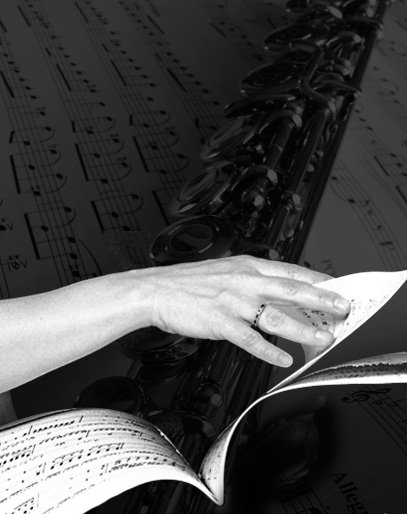Abigail’s research focuses on the study of musical performance, examining it from historical and cognitive perspectives, with a special interest in exploring ways to apply the insights gained in performance.
Her research interests include: 20th century changes in performance style, with a focus on the French School of flute playing, expressivity in performance, and historical recordings as an inspirational source.
Abigail received her PhD from King’s College London. Entitled Landmarks in Flute Performance Style on Record 1900-1950, it is an examination of the changes in flute performance style in 78rpm recordings, focusing on tone qualities and expressivity in performance (abstract below).
The research was awarded the AVI Fellowship and the Edison Fellowship of the British Library Sound Archive. Abigail conducted workshops at the Royal College of Music (2011) and King’s College, London (2010, 2011). She presented papers at the Grove Forum, Royal College of Music (2011); CMPCP Performance Studies Network International Conference, Cambridge (2011); Directions in Musical Research seminar, Institute of Musical Research, London University (2011); Centre for Cognition, Computation and Culture, Goldsmiths College (2011); School of Music, University of Leeds (2010); the Israel Musicological Society Conference (2010); the Performa Conference, Aveiro, Portugal (2009); Orpheus Institute, Belgium (2009); Saul Seminar, British Library (2009); ASH Colloquia, Clare Hall, Cambridge (2008); and the CHARM/RMA Annual Conference (2007).
Before taking the MPhil/PhD course at King’s College London, Abigail completed, with distinction (summa cum laude), an individual interdisciplinary M.A. programme at the Hebrew University in Jerusalem, focusing on the fin de siecle interrelationships between music and other arts.

Her thesis ‘Painting and Expression in Sound: Expressionistic Symbolism in Schoenberg’s Pierrot Lunaire’ examines the ways in which Schoenberg’s Pierrot Lunnaire acts as a meeting point between French Symbolism and German Expressionism, and explores the ways in which visual, symbolic and psychological elements in the text turn into auditory metaphors.
© 2021 Abigail Dolan. All Rights Reserved. Created by FLVN
| Cookie | Duration | Description |
|---|---|---|
| cookielawinfo-checbox-analytics | 11 months | This cookie is set by GDPR Cookie Consent plugin. The cookie is used to store the user consent for the cookies in the category "Analytics". |
| cookielawinfo-checbox-functional | 11 months | The cookie is set by GDPR cookie consent to record the user consent for the cookies in the category "Functional". |
| cookielawinfo-checbox-others | 11 months | This cookie is set by GDPR Cookie Consent plugin. The cookie is used to store the user consent for the cookies in the category "Other. |
| cookielawinfo-checkbox-necessary | 11 months | This cookie is set by GDPR Cookie Consent plugin. The cookies is used to store the user consent for the cookies in the category "Necessary". |
| cookielawinfo-checkbox-performance | 11 months | This cookie is set by GDPR Cookie Consent plugin. The cookie is used to store the user consent for the cookies in the category "Performance". |
| viewed_cookie_policy | 11 months | The cookie is set by the GDPR Cookie Consent plugin and is used to store whether or not user has consented to the use of cookies. It does not store any personal data. |